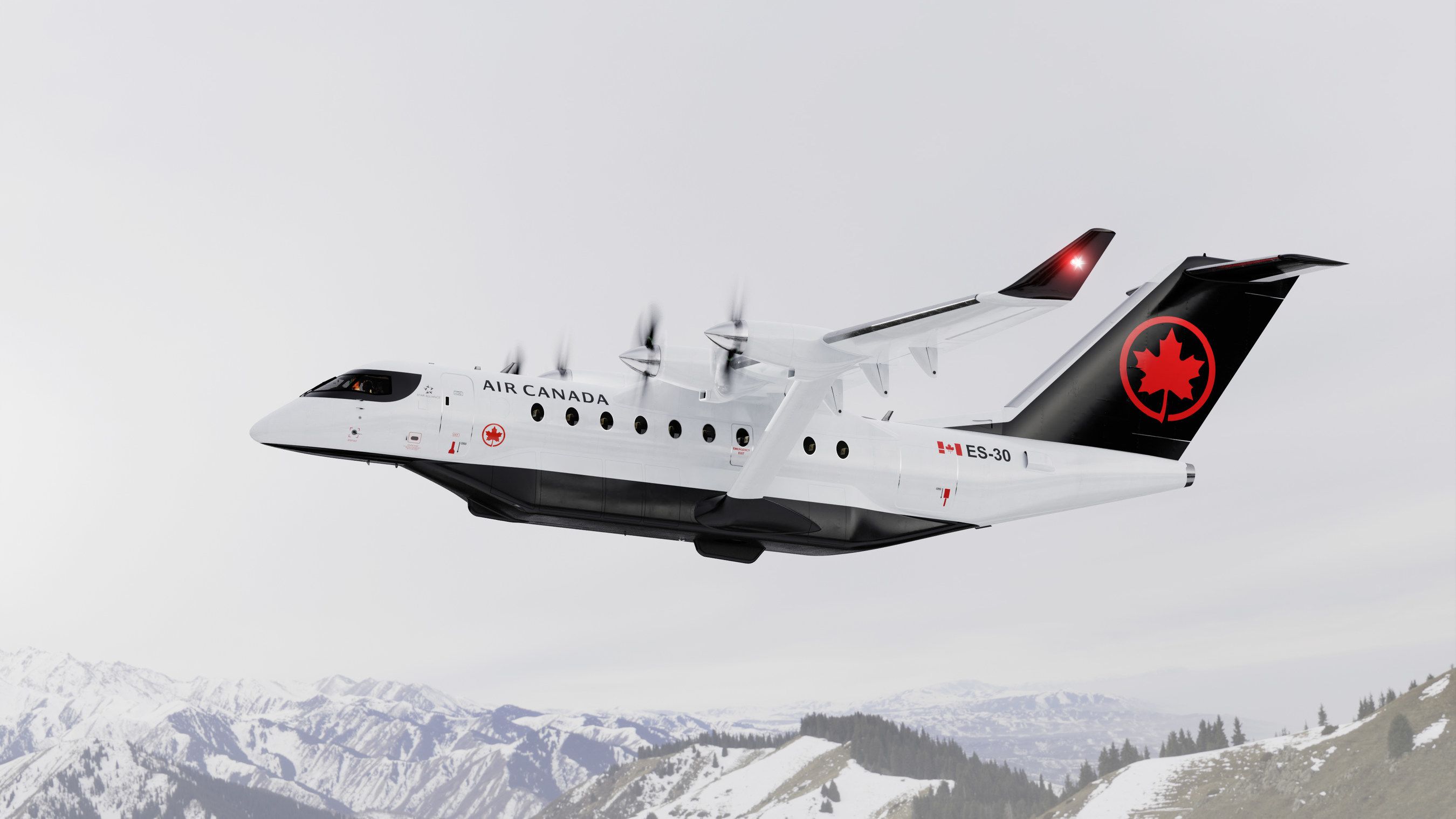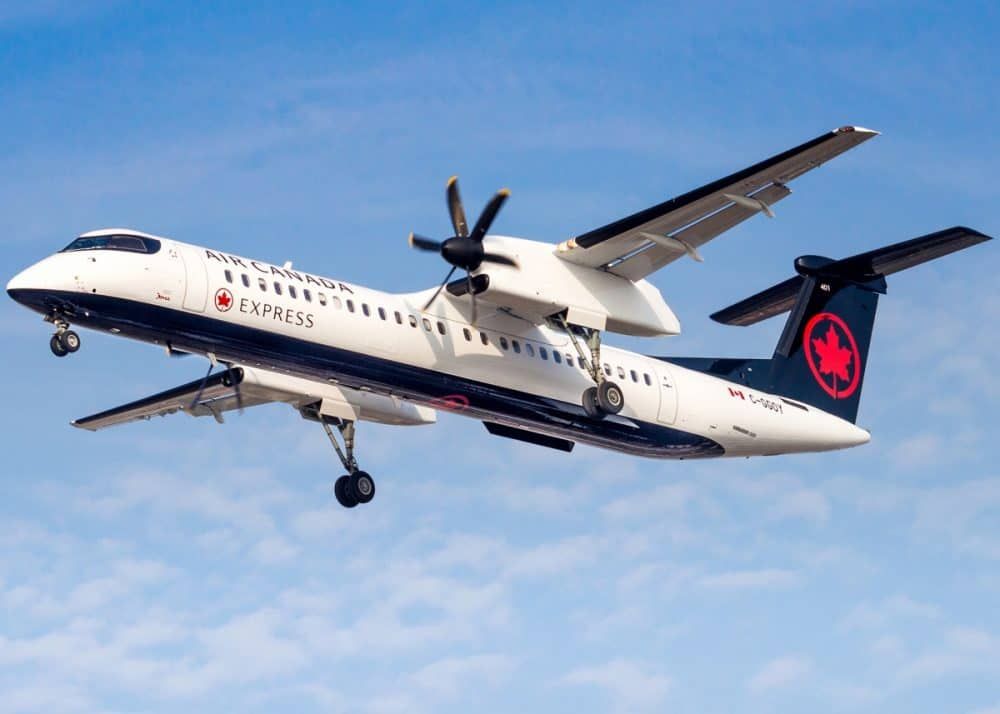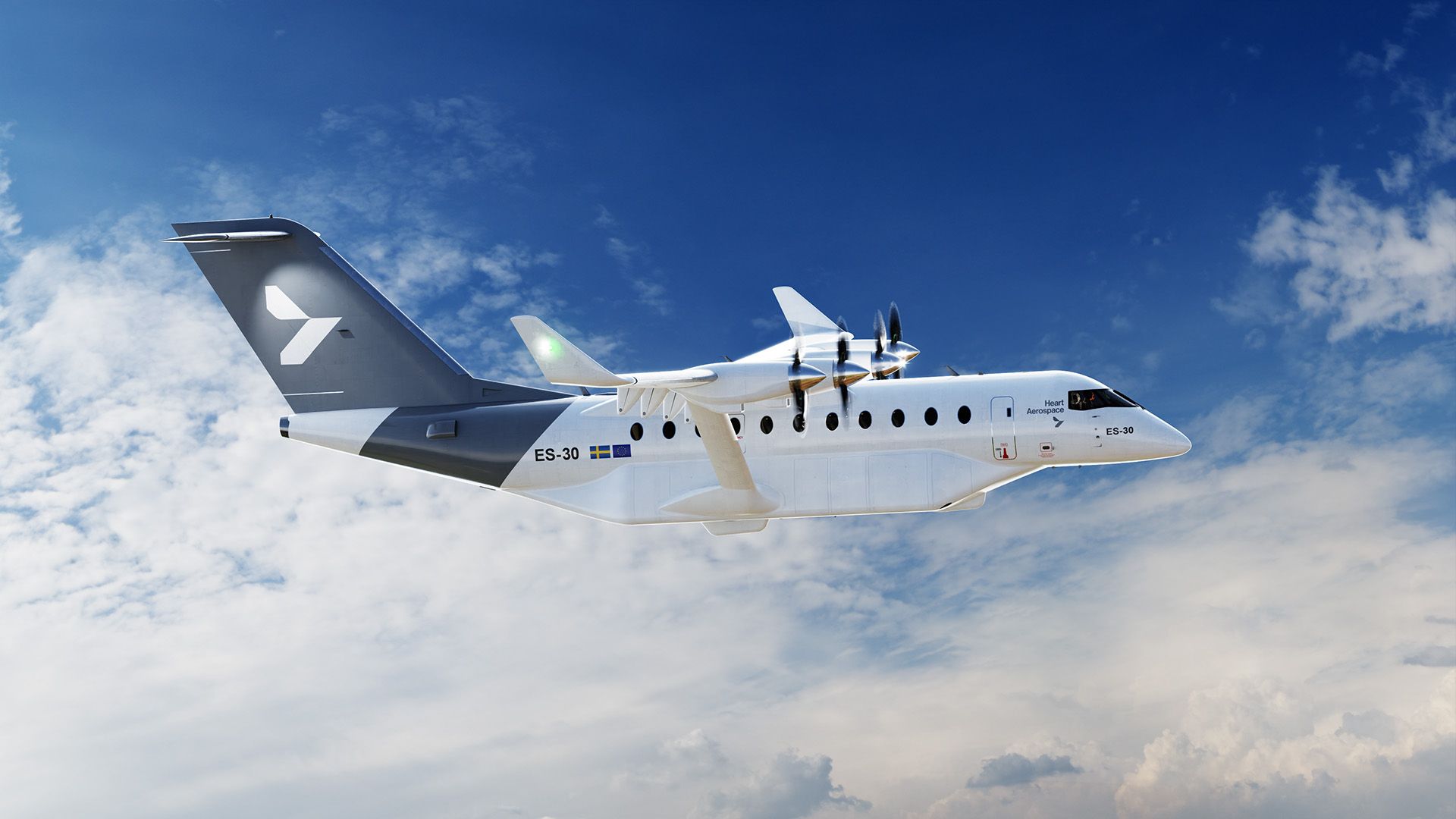A few days after unveiling a significant design update to its first electric aircraft and obtaining confirmed orders from one of North America's largest airlines, Air Canada, Heart Aerospace announced the Canadian flag carrier and Saab as its two newest minority shareholders.
Each party contributed a $5 million investment, though their involvements with Heart Aerospace differ. Anders Forslund, founder and Chief Executive Officer of Heart Aerospace, said:
“We are thrilled to have two strong partners, Saab, and Air Canada, join our mission to electrify regional air travel."
Sustainability with Air Canada
Air Canada has consistently been one of several significant airlines in the aviation industry supporting the development of new technologies like Sustainable Aviation Fuels (SAF) and carbon capture to reduce carbon emissions. So it is no surprise the airline would invest in electric aircraft technology and become an equity partner in the Swedish electric aircraft manufacturer.
Besides investing to further its market research and initiatives on sustainable innovations, Air Canada also operates one of the most extensive regional turboprop networks worldwide, making the airline a relatively reliable partner for future design or marketing inputs regarding the ES-30 aircraft and future models from Heart Aerospace.
President and Chief Executive of Air Canada, Michael Rousseau, emphasized:
“Air Canada is delighted to partner with Heart Aerospace on developing this revolutionary aircraft. We have been working hard with much success to reduce our footprint, but we know that meeting our net-zero emissions goals will require new technology such as the ES-30."
Experience with Saab
The investment from the Star Alliance member airline might seem obvious enough, although it contrasts with Saab, albeit the Swedish aerospace company has plenty of experience in the certification and design of aircraft. Saab has previously indicated that it had zero interest in building or designing any more commercial aircraft, with its final design being the Saab 2000, as an evolution of the smaller Saab 340.
The aerospace company also allegedly rejected an offer from Embraer for its future turboprop and its own all-electric and hybrid-electric innovations. Micael Johansson, President and Chief Executive Officer of Saab, reveals little about Saab's role by saying:
“This underlines our commitment to innovative technology and solutions for sustainable aviation. Heart Aerospace is a pioneer within commercial electric aviation, and we look forward to contributing to the future of aviation with our experience in developing solutions at the forefront of technology."
Although its investment in Heart Aerospace does not necessarily mean it will play any active or direct role in the ES-30 project, the hint could be toward advising Heart Aerospace on matters requiring its expertise. Nonetheless, Saab's involvement without direct input will still help by adding some needed confidence to the program, given its well-known portfolio.
Regarding the collaboration of two Swedish companies, Forslund celebrated by highlighting:
"Growing up in Sweden, Saab is synonymous with aerospace. Our partnership will not only support our program but help us become a part of the proud Swedish aerospace heritage."
Bottom line
Having an airline as an equity partner is advantageous for Heart Aerospace, as Air Canada could contribute pointers regarding routes. As for having Saab as an equity partner, the company might help Heart Aerospace through the certification requirements for the ES-30. Given that the aircraft is electric, there will be a safety concern regarding the hydrogen liquid and the batteries, so Saab might also provide advice on those.
And besides Air Canada and Saab, other Heart Aerospace investors include Breakthrough Energy Ventures, EQT Ventures, European Investment Council, Lower Carbon Capital, Mesa Air Group, and United Airlines Ventures.
Discover more aviation news with Simple Flying!
Source: ch-aviation




